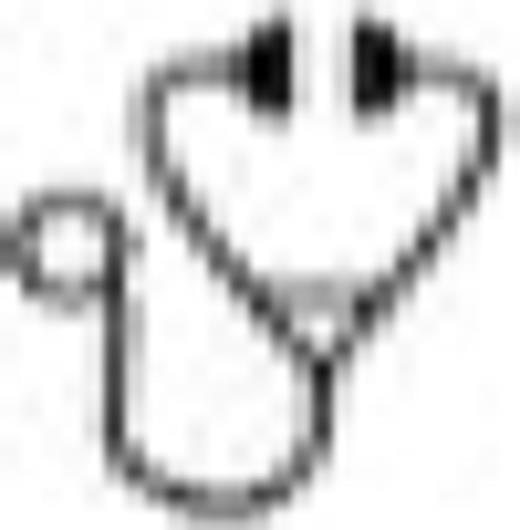Abstract

BACKGROUND: Cold agglutinin disease (CAD) is a rare autoimmune hemolytic anemia characterized by hemagglutination and complement-mediated extra- and intravascular hemolysis. Conventional therapeutic approaches, such as corticosteroids, intravenous immunoglobulin G, alkylating agents or other immunosuppressive drugs, are largely ineffective, and the therapeutic efficacy of rituximab is limited. Successful treatment of a patient with CAD with the terminal complement inhibitor eculizumab reported by us previously (Röth et al., Blood 2009) prompted us to test this novel approach in a larger number of patients.
PATIENTS and METHODS: We conducted a prospective, controlled, non-randomized, multicenter phase II trial with pre- and post-treatment comparison. Inclusion criteria were symptomatic cold agglutinin-mediated hemolysis with a serum lactate dehydrogenase (LDH) level ≥ 2 x upper limit of normal and a cold agglutinin titer > 64 at 4°C. Eculizumab was given by intravenous infusion at 600 mg weekly for 4 weeks, followed 1 week later by a 900 mg dose and then 900 mg every other week through week 26. Two weeks before the first dose patients received vaccination against N. meningitidis. The primary endpoint was LDH level, secondary endpoints included transfusion requirements, parameters of intravascular hemolysis, quality of life, 6-minute walk test (6MWT), circulatory symptoms and thrombosis. The analysis was performed in the intent-to-treat population. Missing data were replaced by carrying the last observation forward. The trial was registered at http://clinicaltrials.gov as NCT01303952.
RESULTS: Between 2011 and 2014 13 treatment-naïve or pretreated patients with CAD were enrolled. The median age was 74 years (range: 64 - 80), with a male-to-female ratio of 3 to 10. After treatment with eculizumab the LDH decreased from a median pre-treatment level of 572 U/L (mean ± standard deviation: 670 ± 300 U/L) by an average of 56% to a median end-of-treatment level of 327 U/L (400 ± 279 U/L; p = 0.0215, Wilcoxon signed-rank test). This was accompanied by a reduction in transfusion requirement from a median of 4.0 red blood cell units per patient in the 12-month period preceding participation in the study to 0.0 units during treatment with eculizumab. In 9 patients, transfusion requirements decreased during eculizumab therapy, in 3 patients, transfusions were required neither before nor during the study, and in one patient, transfusion requirement deteriorated (p = 0.0215, Exact McNemar's test). The result of the 6MWT improved from a median of 358 m at baseline to a median of 420 m at the end of treatment (p = 0.078). Questionnaires for quality of life showed no significant changes. During the enrollment phase, 7 thromboembolic events including 1 pulmonary embolism were recorded in a total of 4 patients; by contrast, no thromboembolic events were observed during treatment with eculizumab. A total of 37 adverse events were reported of which one was considered as probably related to eculizumab (pneumonia, patient recovered). All in all, 57% of adverse events were classified as unrelated, 5% as unlikely to be related, 32% as possibly related, and 3% as probably related to treatment. There were 4 serious adverse events.
CONCLUSIONS: Treatment with eculizumab was safe and well tolerated in patients with CAD. It resulted in a statistically significant reduction in hemolysis and transfusion requirements and appeared to have a favorable impact on thromboembolic complications. The results of this trial support the notion that terminal complement activation is a relevant mediator of erythrocyte destruction in CAD.
Röth:Alexion Pharmaceuticals: Honoraria, Membership on an entity's Board of Directors or advisory committees, Research Funding; Geron: Research Funding. Off Label Use: Use of eculizumab in CAD. Bommer:Alexion Pharmaceuticals: Honoraria. Hüttmann:Celgene: Other: Travel support, Speakers Bureau; Takeda: Consultancy, Other: Travel support; Gilead: Consultancy; Amgen: Consultancy, Research Funding; Roche: Research Funding. Schrezenmeier:Alexion Pharmaceuticals: Membership on an entity's Board of Directors or advisory committees, Research Funding, Speakers Bureau. Dührsen:Amgen: Honoraria, Research Funding; Roche: Honoraria, Research Funding; Alexion Pharmaceuticals: Honoraria, Research Funding.
Author notes
Asterisk with author names denotes non-ASH members.

This icon denotes a clinically relevant abstract

This feature is available to Subscribers Only
Sign In or Create an Account Close Modal